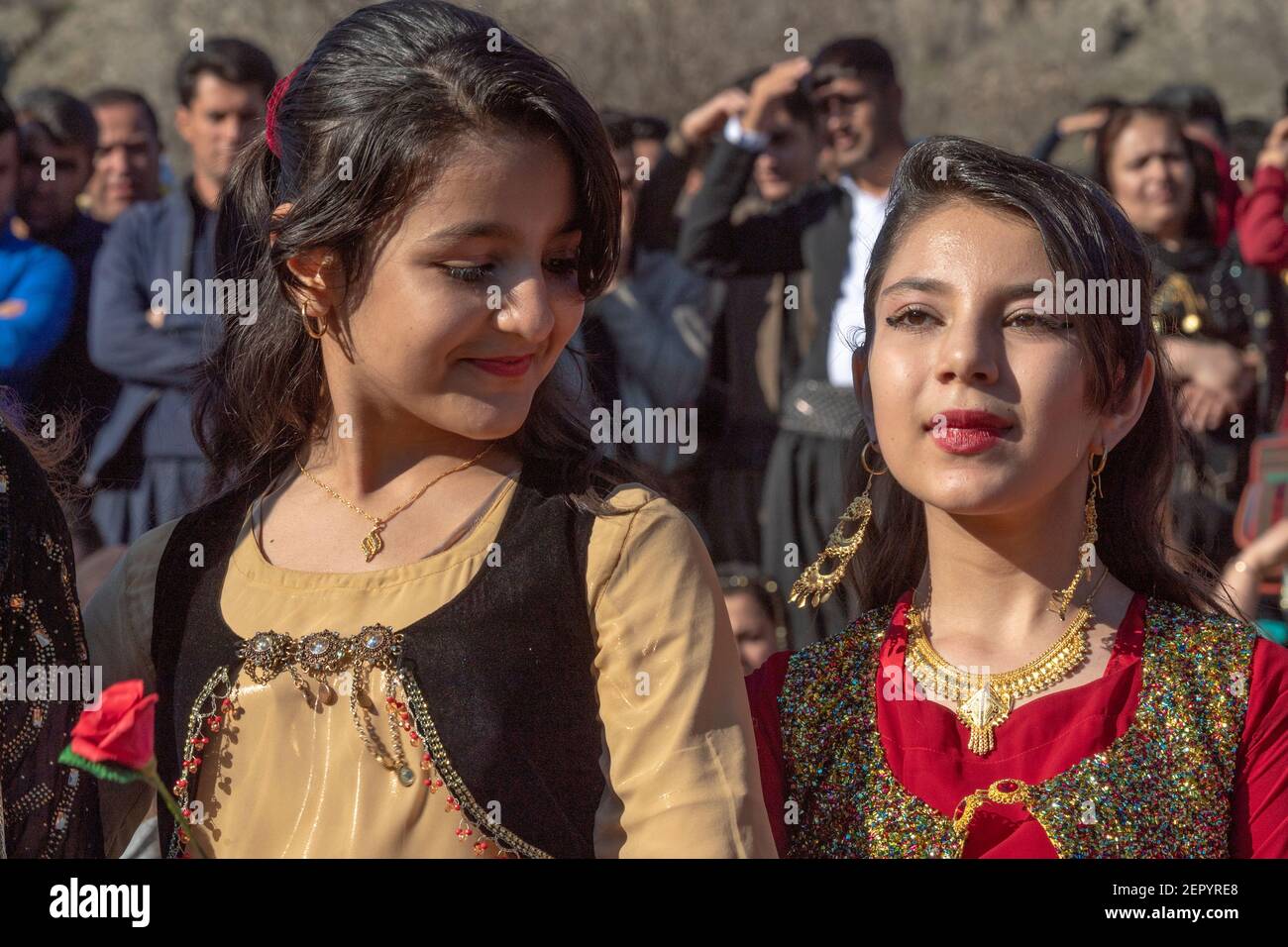Nowruz celebrations near Biakara, Marivan district, Kurdistan, Iran

Image details
Contributor:
François-Olivier Dommergues / Alamy Stock PhotoImage ID:
2EPYRE8File size:
51.2 MB (3 MB Compressed download)Releases:
Model - no | Property - noDo I need a release?Dimensions:
5179 x 3453 px | 43.8 x 29.2 cm | 17.3 x 11.5 inches | 300dpiDate taken:
20 March 2019Location:
Biakara, Marivan district, Kurdistan, IranMore information:
Newroz or Nawroz is the Kurdish celebration of Nowruz; the arrival of spring and new year in Kurdish culture. In Zoroastrian doctrine, fire is a symbol of light, goodness and purification. Angra Mainyu, the demonic anti-thesis of Zoroastrianism, was defied by Zoroastrians with a big fire every year, which symbolized their defiance of and hatred for evil and the arch-demon. In Kurdish legend, the holiday celebrates the deliverance of the Kurds from a tyrant, and it is seen as another way of demonstrating support for the Kurdish cause. The celebration coincides with the March equinox which usually falls on 21 March and is usually held between 18 and 24 March. The festival has an important place in terms of Kurdish identity for the majority of Kurds. Though celebrations vary, people generally gather together to welcome the coming of spring; they wear coloured clothes and dance together. The arrival of spring has been celebrated in Asia Minor since neolithic times. The root of this story goes back to ancient Iranian legends, retold the Shahnameh, a poetic opus written by the Persian poet Ferdowsi around 1000 AD, and the Sharafnameh by the medieval Kurdish historian Sherefxan Bidlisi. March 20 is traditionally marked as the day that Kaveh defeated Zahak, an evil Assyrian king. This legend is now used by the Kurds to remind themselves that they are a different, strong people, and the lighting of the fires has since become a symbol of freedom. It is a tradition to jump across a fire at Newroz, as here near Biakara, Marivan district, Kurdistan, Iran.